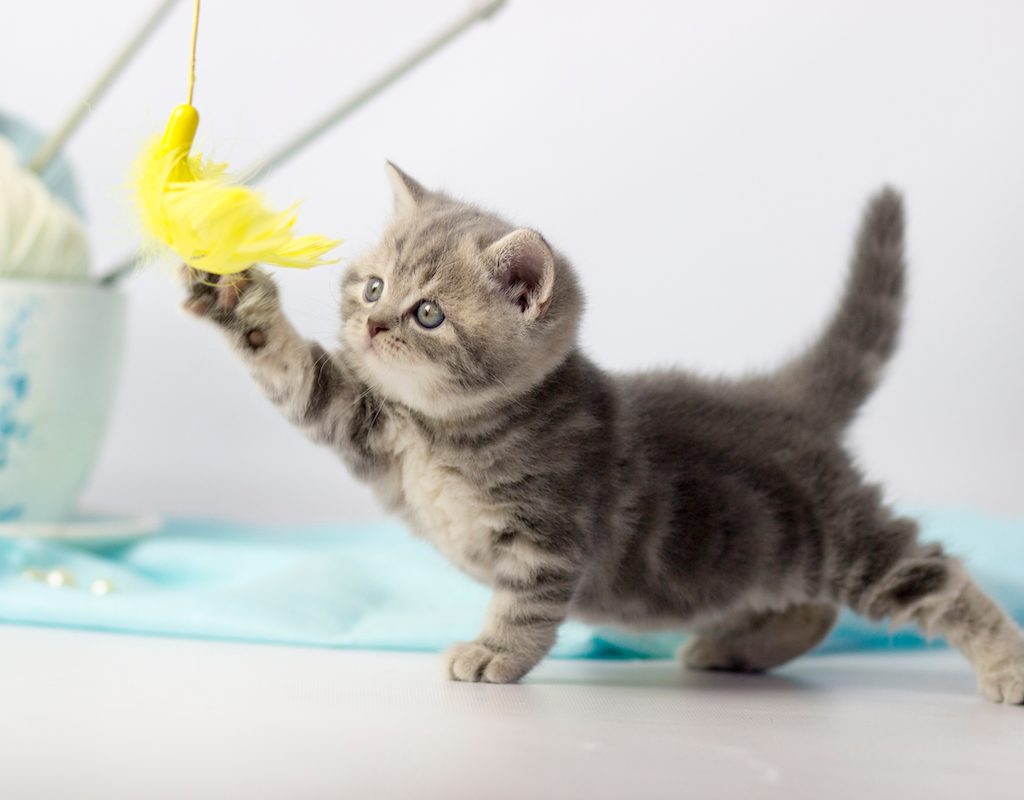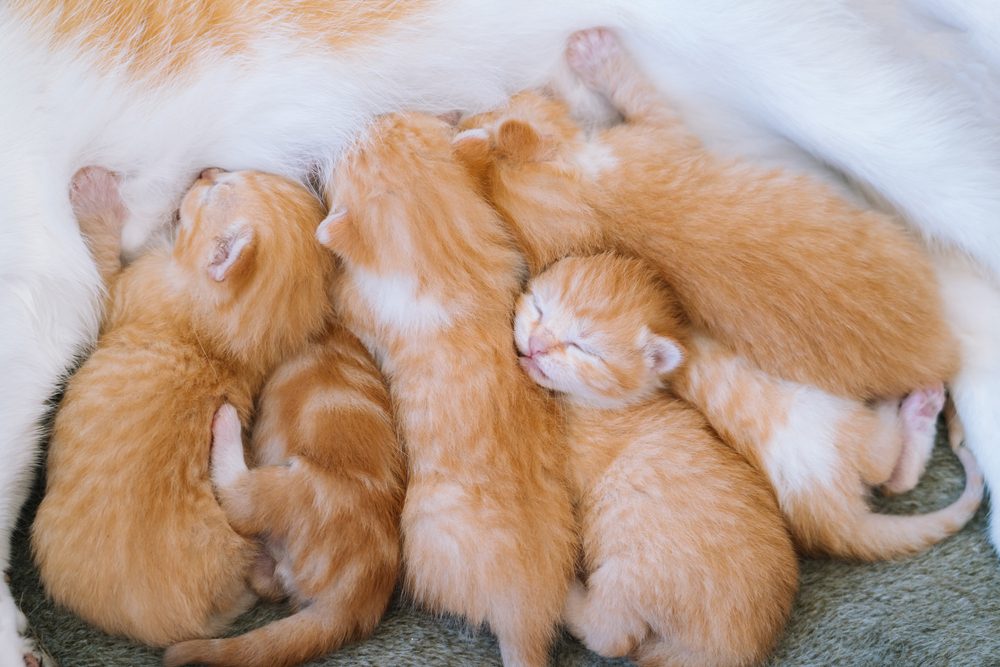
Being responsible for a newborn kitten is a daunting task, but it’s also an exciting and rewarding experience. Kittens go through some of their most impressive growth spurts during the first 12 weeks of life. But is your kitten hitting all the right milestones? Just like with human babies, there’s a kitten weight chart they should reach at certain points in their growth process. Steady weight gain, opening their eyes at the right time, and increased socialization with littermates are all indications that your kitten is on the right track.
But how much should a kitten weigh at each stage of development? We’ve consulted the experts to find out the optimal weight goals for your kitten. We’re here to share everything you need to know about the ideal kitten weight by age, what you should know about caring for kittens every step of the “weight,” and when you should contact your vet for assistance.

What weight should my kitten be?
While dog breeds vary widely in size, there’s not as much size difference when it comes to cats. Some cat breeds, like Maine Coons, can grow to record-breaking proportions, but the average adult cat weighs around 10 pounds. However, it’s common for perfectly healthy cats to weigh around five pounds (the Siamese is a good example) or come in at a hefty 20-plus pound weight (like Maine Coons or Norwegian Forest Cats).
When it comes to kitten weight, the general guideline is that your fur baby should weigh roughly her age in months. For example, a healthy weight for a 1-month-old kitten is one pound, whereas a 4-month-old kitten should weigh approximately four pounds. Bear in mind that this is a general guideline, and the most important thing is your kitten’s health. You should always consult your veterinarian if you believe your kitten isn’t gaining weight like she should. By the time your kitten reaches six months of age, her weight gain varies more depending on their breed.
How much weight should a kitten gain each week?
Your kitten should gain approximately ½ ounce (or 14 grams) per day for a total of four ounces (or 113 grams) each week. You can follow this handy kitten weight chart to make sure your new fur baby stays on target with her weight gain.

Maintain a proper feeding schedule for optimal weight gain
If your kitten is nursing from her mother, she’ll set her own feeding schedule and eat as often as she wants. However, if you’re caring for a young kitten without Mama Cat’s help, you’ll want to stick to a feeding schedule. Because a kitten’s weight can triple during her first weeks, her energy expenditure is much higher than that of an adult cat. It’s impossible for a kitten to take in enough calories as she needs in a single meal, so it’s best to feed her smaller amounts throughout the day.
Experts recommend six small meals during the day to ensure that your kitten’s caloric needs are met. Some veterinarians recommend free-feeding, which means leaving food out for your kitten all day long. If your kitten is on the small side, free-feeding may be a good option. However, it may not be a good choice for an overweight feline. Opt for kitten food with vital fatty acids, vitamins, and protein to provide your fur baby with a nutrient-rich diet. It’s also important to make sure your kitten has constant access to clean water.
What to do if your kitten isn’t gaining weight
If your kitten eats regularly but doesn’t gain weight, loses weight, or experiences digestive problems like vomiting or diarrhea, take her to the vet immediately. It’s possible your kitten has intestinal parasites, which feed off your tiny animal and prevent her from absorbing enough nutrients from her food to gain weight. Catching health problems early tends to result in a more positive outcome, so it’s important to take your kitten to the vet at the first sign of a potential health issue.
If your kitten is eating dry kibble, the cause of her weight loss may be a gluten allergy. Just like humans, some cats are gluten intolerant and may require a grain-free diet. A gluten allergy is rarer in cats than in humans, but it has been known to happen. Symptoms include weight loss, diarrhea, loss of appetite, lethargy, and – in some cases — hair loss.

How do I know how big my kitten will be?

Tracking your kitten’s weight is important
Caring for a new kitten is a joy, but it’s also a huge responsibility. Making sure your new fur baby stays on track with her weight gain is an essential way to monitor her progress during the first few months of life. Weigh her daily at roughly the same time, make sure to feed her a vet-approved diet, and contact your vet if you run into trouble along the way. With care and attention, your new kitten should be thriving in no time.



